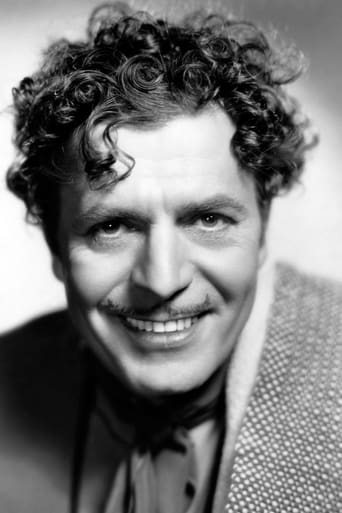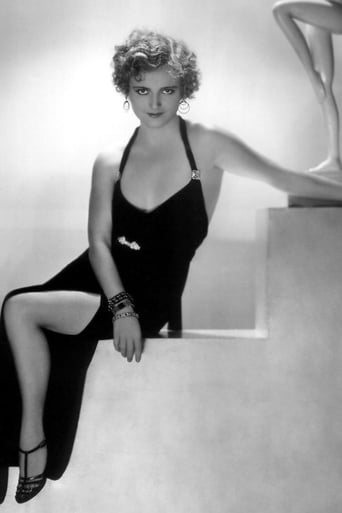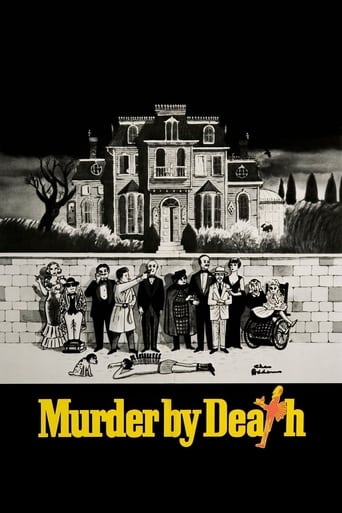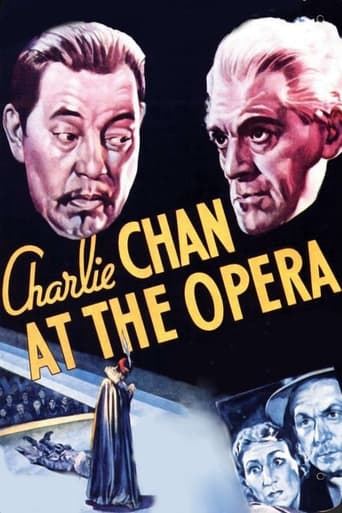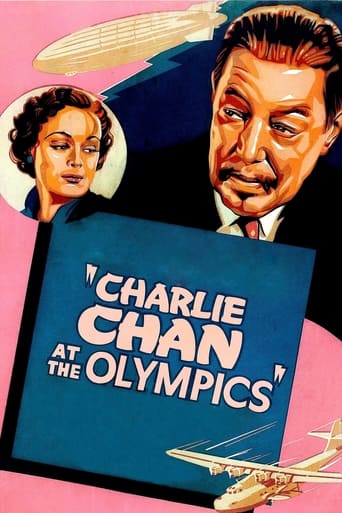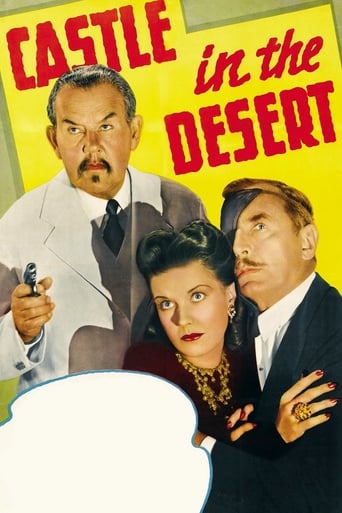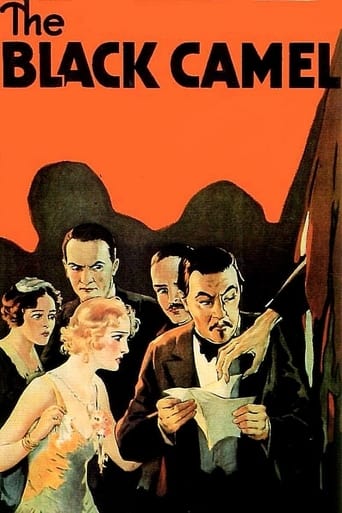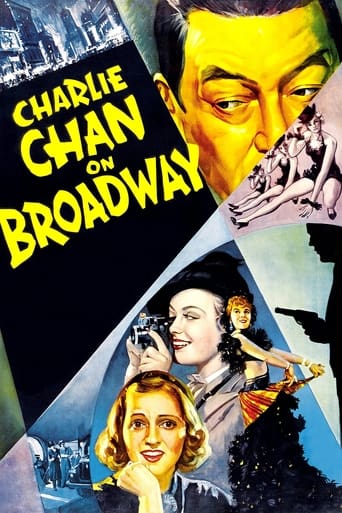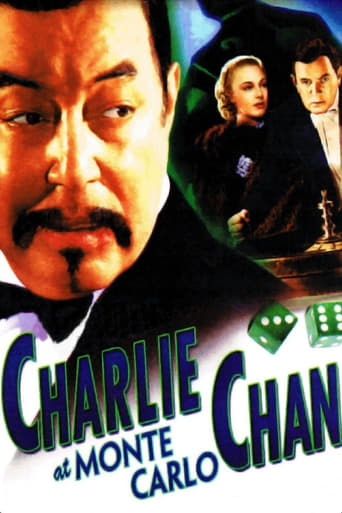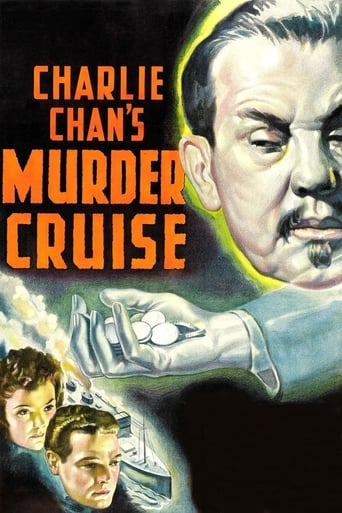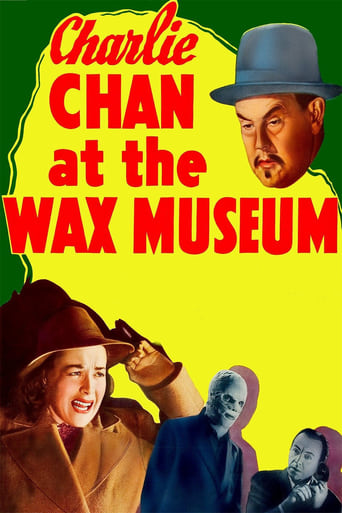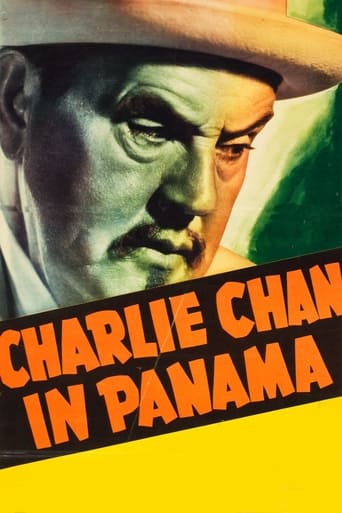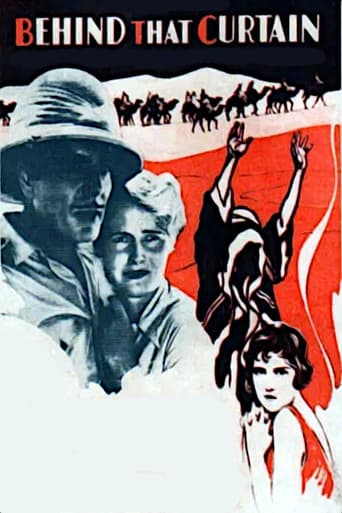

Behind That Curtain (1929)
Sir George hires Hillary Gatt to find out more about Eric who wants to marry Lois. Gatt is murdered and the couple, married, run off to India. Old friend John Beetham sympathizes with the bride who sees that her hubby is a liar and drunk.
Watch Trailer
Cast
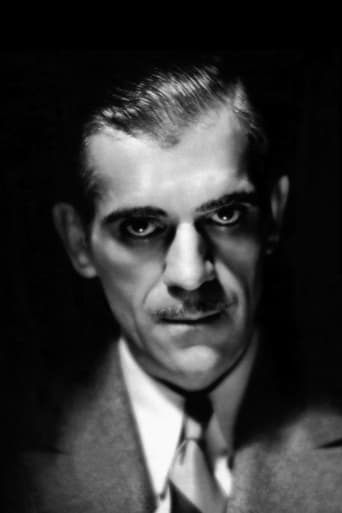


Similar titles
Reviews
So much average
Highly Overrated But Still Good
It’s fine. It's literally the definition of a fine movie. You’ve seen it before, you know every beat and outcome before the characters even do. Only question is how much escapism you’re looking for.
By the time the dramatic fireworks start popping off, each one feels earned.
very crisp copy. i was very entertained. pure escapism thats what we want ! the first charlie chan what else are you going to do with the 91 minutes?you wont be sorry, its fun, with great locations plot and good cinematography, although the acting sometime is stilted but at times passionate and love conquers all ! evil is destroyed! I've watched it 3 times and it is fascinating! is rather well done and the film really would be of interest today, at least as a period piece and artifact of a time period 80 years ago. there are a number of excellent shots in downtown San Francisco of 1929.Boy gets girl! any other questions?
This film is of historical interest, as the first appearance on film of the Charlie Chan character, even though he doesn't appear until about 50 minutes into the movie, and is in only 3 scenes. But as a movie, it is almost intolerably bad. The actors were obviously very unsure of themselves, making the transition from silent to sound movies. I've seen Warner Baxter in silent films, and he was by no means as frozen as he was in this movie. Now and then he relaxes, and his dialog becomes a bit more natural, as it would be a few years later in a film like "42nd Street". But here, he seems flummoxed by the need to actually MEMORIZE lines - there are several moments where he speaks hesitantly, for all the world as if he just couldn't remember the line, and can no longer just say whatever he wants, as one could in a silent film.Baxter is not the worst offender - the character of Mr. Galt (destined to play the melancholy role of "The Body") speaks so slowly and with such exaggerated pronunciation, is just terrible. Many of the actors appeared to be falling back on stage performance techniques, with loud emoting and over-enunciation, and as a result they over-powered the camera - or they would have, if their loud, artificial voices hadn't been combined with near-immobility. Everyone seems afraid to move - they plant themselves in one spot, then roar out their lines.The camera-work is also very unimaginative for the most part, with one notable exception - the camel caravan traveling over the desert was quite beautifully photographed. It's probably not a coincidence that the scene was purely visual - when the filmmakers could fall back on the more familiar silent movie techniques, they seemed much freer and imaginative. The new technology, by contrast, introduced awkwardness and seemed burdensome.The plot and the script were both very lame. The murderer is revealed very quickly, and mystery is replaced by a love triangle and a romance. Eve, the heroine, overacts horribly, with lots of head-bobbing and wriggling to convey her anguish. Her motivation is completely unbelievable - married to a murdering psychopath who has every reason in the world to kill her, she persists in fleeing from the police, and refusing to help convict him, even when her own life is at stake, and the police have hard evidence anyway, and there is no chance he can escape justice.The script does deserve some credit for treating a theme like adultery in a rather surprisingly hard-edged way. There's no softening of the despicable betrayal, or of the heroine's painful discovery that her husband has been sleeping with their Indian maid - she even finds the latter's earring in her own bed! She has her own moment of temptation later on, but resists with the time-honored line, "After all, he IS my husband!" It's a good reminder that the '20s were by no means a strait-laced decade - the tasteful expunging of sex in the movies came later. But then the movie ruins it by having Eve shrinking from divorcing her cad of a husband (one of my favorite lines, by the way: "Are-you-going-to------DIVORCE------me???") because she is afraid of the scandal. Divorce wasn't THAT big a scandal in the '20s, especially among the rich. Eve is always veering between put-upon, shrinking damsel in distress and unpredictable, capable woman on her own. The movie would have been far better if she had been portrayed as a strong, modern woman throughout, but that Eve would never have been so stupid and sentimental as to leave a murderer roaming the streets.
This 1929 film is included on Charlie Chan Volume 3 as part of the complete history of Chan's character at Fox. For that reason it is good to have it. Viewing it, however, is another matter entirely. It is a great example of a bad early talkie in almost every category except cinematography. Fox used sound-on-film versus vitaphone, thus their early talkies don't have that static claustrophobic quality other 1928 and 1929 talkies have.However the dialogue in many ways is held over from the silents as is the acting. At one point Warner Baxter is declaring his love to the leading lady by repeating "I love you! I love you! I love you". In the words of Singin' in the Rain, did someone get paid to write this dialogue? The overacting is unbelievable and the speech is tortuously slow.The point of interest for most of us watching this film, the first appearance of Charlie Chan in a Fox film, doesn't take up much screen time. He appears near the beginning to identify a crucial piece of evidence and for a few minutes during the end. The murderer is identified almost at the beginning of the film and most of the time is taken up by a poorly acted love triangle tale. This is not the first appearance of Warner Oland in the title role, though. That doesn't occur for another two years. This film is only for hardcore Charlie Chan fans the same way that "An Old Spanish Custom" is for Buster Keaton fans.
Sir George Mannering disapproves of the relationship of his daughter Eve and Eric Durand to a point where he hires Hilary Galt to investigate Durand's previous activities. Galt is found murdered and Eve announces to her father that she and Eric eloped and they will be moving to Egypt, devastating Sir George and American explorer Col. John Beetham, who is infatuated with Eve. Scotland Yard inspector, Sir Frederick Bruce, believes Durand had a hand in the murder of Galt, and tracks him down in Egypt, while in the meantime, Beetham meets up with Eve in Egypt, she runs away from him (its been implied that Durand has been hot-n-heavy with the maid), but then Durand goes after her to prevent Eve from telling the police what she knows about Galt's murder. If you are looking forward to this film as a Charlie Chan or Boris Karloff fan, you might be disappointed considering both have very little impact or to do in the story. The movie could use a better mystery angle, but the movie is faithful to the style of the Biggers books (romantic plot, with Charlie Chan as the secondary character solving the mystery). The performances and production are stale, but the fact that its 1929, with the emphasis on the movie being a talkie must be considered. Still director Cummings should have informed Philip Strange that melodrama was dead by this time. Rating, 3.


